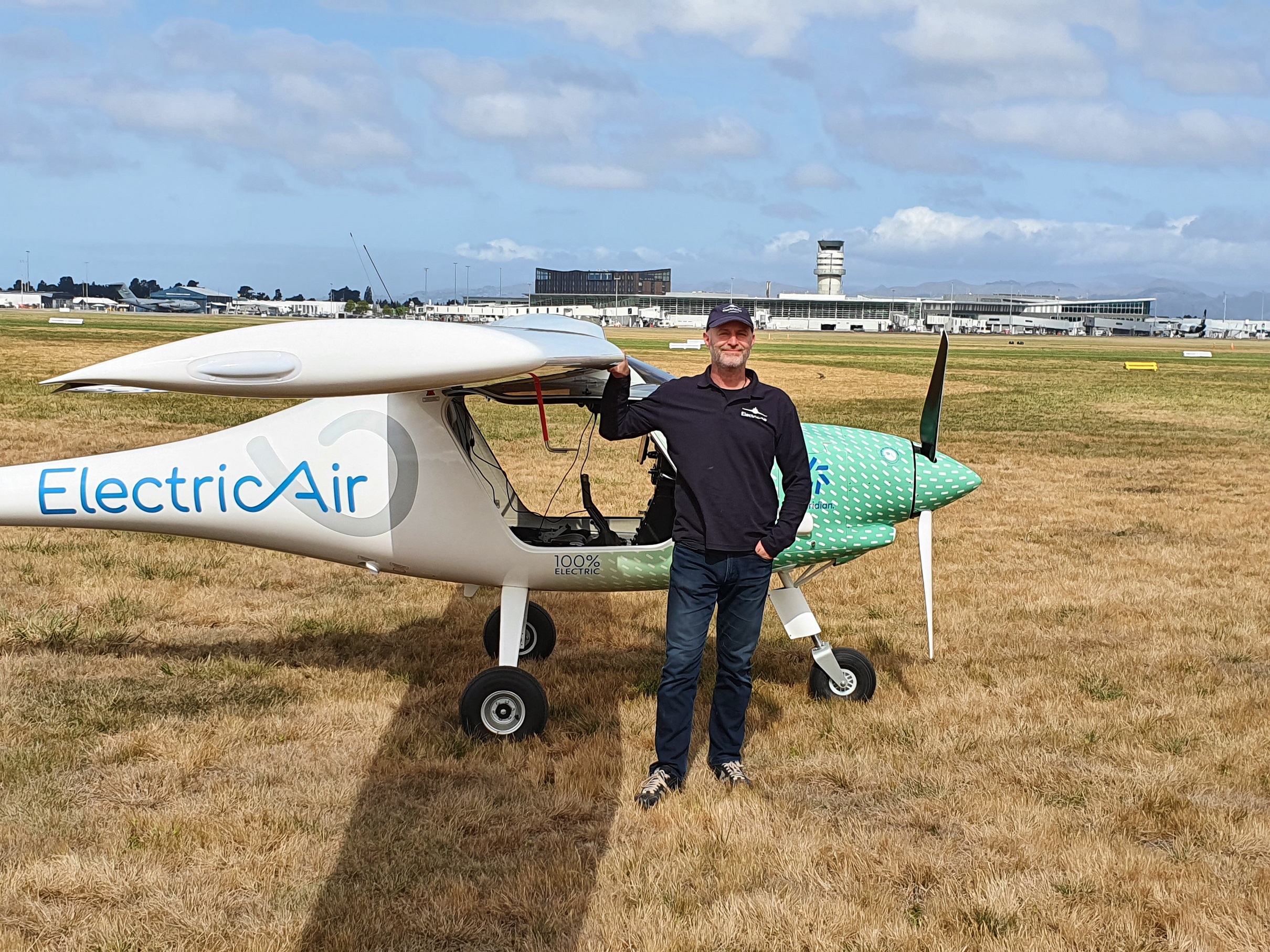Christchurch company Electric Air weathered the 2020 Covid storm, and now it’s looking to really fly in 2021. Catherine Beard has more.
Electric Air founder Gary Freedman (pictured above) managed to weather the storm of a global pandemic in 2020. “We’ve gone from a social enterprise start-up to a well-known, trading entity. It was a big year,” he reflects.
Freedman is tapping into the environmental and economic opportunity for low emission aviation and aerospace innovation in New Zealand, with a long-term ambition for exporting.
The Christchurch-based start-up has launched New Zealand’s first fully electric plane. Electric Air has its sights set on using its planes for scenic tourist flights, pilot training and for private hire.
The plane is a battery electric two-seat light aircraft made by Slovenian company Pipistrel. It has already begun demonstration flights from Christchurch Airport and can fly for an hour on batteries that take about 45 minutes to charge.
Freedman says it has been designed as a training aircraft and for now will be available for people wanting to experience electric flight and learn to fly more sustainably.
The global electric aircraft market is expected to grow substantially in coming years, he says.
Allied Market Research[1] expects the sector to grow at a CAGR of 35.76 percent over 2020-2027 and is anticipated to reach $US1.27 billion by 2027.
Freedman says the business started small, receiving support from Christchurch City Council with a couple of sustainability grants.
“We were able to win some funding through that way. The rest of the investment came from the private sector, including some sponsorship from Meridian Energy. We’ve also received support from Christchurch Airport and Airways.”
Freedman says there is “definitely” benefits to being a Kiwi-run business. “We’re a great little community. It’s relatively quick and easy to find help and make contacts in New Zealand and we have a good reputation for honesty and innovation around the world.”
For now, Electric Air is focused on the New Zealand market, but it does plan to grow its export offering in the coming years, Freedman says.
Learning to fly
Freedman admits his journey with Electric Air has been a turbulent one. “I think all entrepreneurs have good and bad days. To make the hard times worthwhile you have to really believe in what you’re doing. For us, it’s about making an environmental difference.
“My advice is to find something you’re passionate about and don’t give up.”
Air travel makes up about three percent of global greenhouse gas emissions but modelling suggests that could rise to about ten percent by 2030.
Electric Air isn’t alone in vying for recognition in the industry locally. Californian company Wisk (formally Zephyr Airworks) also has trials underway in Christchurch. Wisk’s autonomous aircraft takes off vertically and travels at about 100kmh to 150kmh.
Meanwhile, Uber has been working on what it’s calling ‘the future of urban mobility’, a zero-emission electric air vehicle service which is set to begin trials soon.
It remains to be seen whether New Zealand can stamp its mark on the electric flight sector and replicate what it has done in the space sector.
Catherine Beard is executive director of ExportNZ and ManufacturingNZ – divisions of BusinessNZ, New Zealand’s largest advocacy body. This story is also published in the May 2021 Quarterly edition of NZBusiness magazine.




